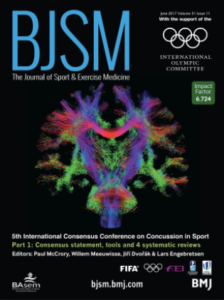Objective: Currently youth sports hockey programs do not adhere to concussion protocols. The purpose of this study was to examine the relations between performance of two sideline assessments.
Design: Retrospective analysis of two measures given as part of a youth travel hockey program.
Setting: Ice hockey skating facility in Westchester County, NY (USA).
Participants: A sample of 121 youth hockey players participated. All of the athletes were administered the King-Devick, SAC (ages 13-18) and Child SAC (ages 10-12) at baseline, sideline, and once symptom free.
Main results: Mean age was 13.2 (SD=1.2) and there 118 were boys (97.5%). The majority of sample had zero self-reported past concussion (n=113; 93.3). Fourteen athletes sustained concussions. Worse King Devick scores were associated with overall worse SAC and Child SAC Concentration and Delayed Memory scores. For every 1-point reduction in SAC Delayed Memory Score, there was a worsening of King Devick time score of 5.3 seconds (95% CI 5.0, 9.5, p<0.001) for children ages 13–18, and a time score difference of 5.8 seconds for children ages 10–12 (95% CI 5.9, p<0.001). In examining SAC total score, a 1-point decrease was associated with King Devick score worsening of 2.0s (95% CI 0.5, 4.0, p=0.01). Most common symptoms were headache and fatigue for all ages. Once symptom free, there was a trend toward improvement on both measures compared to baseline.
Conclusions: This study reaffirms prior studies that both King Devick and SAC are effective combination clinical tools that assess athletes with suspected concussion.
Summary Points:
- Worse K-D Test scores were associated with lower SAC and Child SAC Concentration and Delayed Memory scores.
- Following concussion injury, there was a trend toward improvement on K-D Test as patients became symptom free.
The K-D Test and SAC are an effective combination of clinical tools to assess athletes with suspected concussion.

